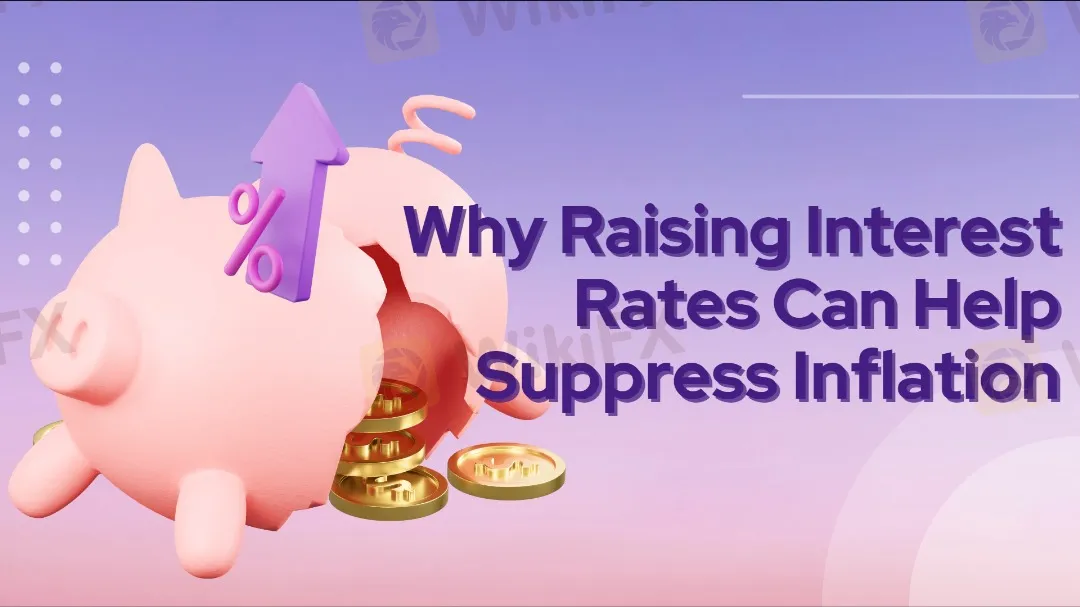简体中文
繁體中文
English
Pусский
日本語
ภาษาไทย
Tiếng Việt
Bahasa Indonesia
Español
हिन्दी
Filippiiniläinen
Français
Deutsch
Português
Türkçe
한국어
العربية
Why Raising Interest Rates Can Help Suppress Inflation?
Abstract:Over the past significant period, the United States has consistently implemented interest rate hikes with the aim of curbing inflation. Throughout this process, although the inflation data in the United States did not decrease rapidly, there was, at the very least, a containment of the upward trend. So, why does raising interest rates help control inflation?

Over the past considerable period, the United States has been consistently raising interest rates with the aim of curbing inflation. Throughout this process, it can be observed that, although inflation data in the United States did not decrease rapidly, at least the upward momentum was contained.
So, why can raising interest rates curb inflation? Let's briefly discuss this today:
How does inflation occur?
The fundamental reason why inflation occurs is that there is too much money supply, which is what is called “flooding the market with money”! Money represents purchasing power. When the money supply increases, the purchasing power of the whole society rises, consumption and investment increase, and price hikes become inevitable. At the same time as consumption demand increases, it will also stimulate producers of goods to increase investment in order to expand production capacity, thus leading to an increase in demand for raw materials and causing prices of raw materials to rise. This in turn drives up production costs of goods.
Ultimately, this forms inflation!

One of the purposes of interest rate hikes: Curbing consumption and investment!
After interest rate hikes, consumption can be restrained in two aspects:
Having money in the bank to earn higher interest will curb the desire for consumption.
Higher interest costs on borrowing for investing or consumption.
As long as consumption and investment are curbed, inflation can then also come down.
Second purpose of interest rate hikes: Appreciating domestic currency
After interest rate hikes, it pushes the appreciation of domestic currency against foreign currencies, enhancing the purchasing power of domestic currency on imported goods.
With the lowered costs of goods imported from foreign countries, the sales prices of these goods domestically can also come down, thereby driving down overall inflation levels.
Therefore, interest rate hikes whether externally or internally, are helpful in curbing inflation.
Interest rate hikes can curb consumption and investment, thereby resisting inflation;
Interest rate hikes can increase purchasing power of imported goods, thereby resisting inflation.

Disclaimer:
The views in this article only represent the author's personal views, and do not constitute investment advice on this platform. This platform does not guarantee the accuracy, completeness and timeliness of the information in the article, and will not be liable for any loss caused by the use of or reliance on the information in the article.
Read more

Southeast Asia’s Trade Outlook in the Face of U.S. Tariff Adjustments
As the U.S. adjusts its tariff policies, Southeast Asian nations are facing a critical moment in trade negotiations, with the region’s economy potentially on the brink of new opportunities.

IronFX Launches Online Trading Education to Boost Trader Education
IronFX launches a trading education blog offering in-depth market analysis, expert insights, and practical strategies for traders at all levels.

J. Safra Sarasin Acquires 70% Stake in Saxo Bank for €1.1 Billion
Swiss bank J. Safra Sarasin acquires 70% of Denmark's Saxo Bank for €1.1B, enhancing digital wealth management and global fintech presence.

FBS Analysts Forecast 2025: Opportunities Amidst Market Volatility
As 2025 approaches, the global cryptocurrency market enters a phase filled with uncertainties and challenges.
WikiFX Broker
Latest News
Traze Receives Authorization from UAE Securities Regulator
Markets.com vs SAXO: Which One Is More Suitable for You?
The Real Story of TriumphFX: How Investors are Losing Millions
Webull Pay and Coinbase Join Forces to Offer Better Crypto Trading
3 Useful News for Traders - Check ASAP!
Southeast Asia’s Trade Outlook in the Face of U.S. Tariff Adjustments
Inside the Market: Who’s Buying, Who’s Selling, and Why It Matters
eToro Introduces Staking for Cosmos and Polkadot
The Facebook Fraud That Stole RM649,000 | How to Avoid Being Next
CMC Markets Just Made a Move That Could Transform CFD Trading
Currency Calculator


